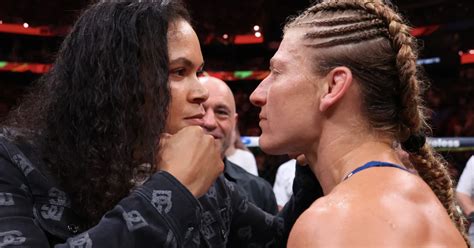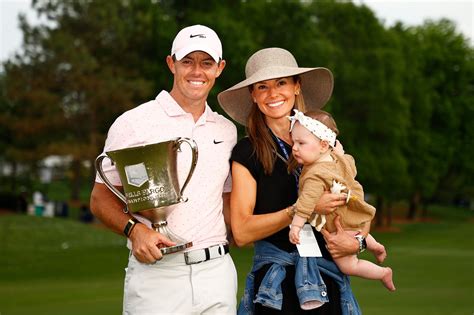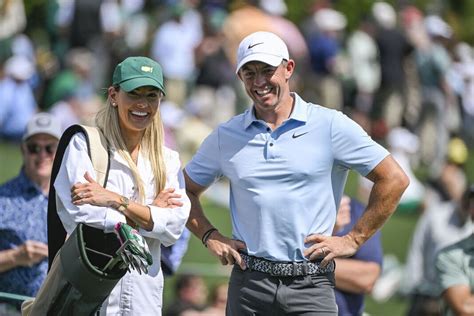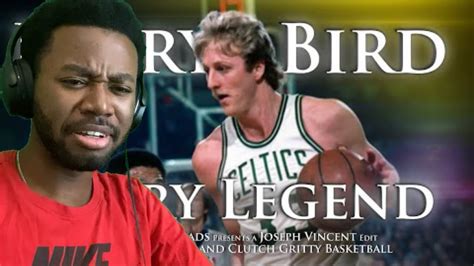
Demetrious “Mighty Mouse” Johnson believes Cris Cyborg’s transition to boxing and subsequent loss to Simone Silva serves as a cautionary tale for Kayla Harrison, warning against a potential fight with Amanda Nunes. Johnson argues that the skills required for mixed martial arts do not automatically translate to success in boxing, and a similar outcome could await Harrison if she pursues a bout with Nunes.
Former UFC flyweight champion Demetrious Johnson has cautioned Kayla Harrison against pursuing a boxing match with Amanda Nunes, citing Cris Cyborg’s recent experience as a warning. Johnson, now a ONE Championship titleholder, believes that Harrison, despite her impressive MMA credentials, may be underestimating the specialized skillset required for boxing, mirroring Cyborg’s transition and subsequent defeat.
“I saw Cris Cyborg go over to boxing and get boxed up by Simone Silva,” Johnson said in a recent interview. “And that’s a prime example. Cris Cyborg, she’s been in the game for a long time, she’s been striking for a long time, but she went over to a sport she doesn’t really do, which is straight boxing, and got beat.”
Johnson emphasized the distinct differences between MMA and boxing, highlighting that striking in MMA involves a broader range of techniques, including kicks, knees, and elbows, which necessitate a different approach compared to boxing’s singular focus on punches. He suggests that Nunes, with her established boxing pedigree, would have a significant advantage over Harrison in a boxing-only contest.
“If Kayla Harrison goes over to boxing to fight Amanda Nunes, I think that’s a very bad idea,” Johnson stated. “I think she needs to stay in MMA.”
Johnson’s warning comes as Harrison, a two-time Olympic gold medalist in judo and a former PFL champion, has publicly expressed interest in facing Nunes, widely regarded as one of the greatest female MMA fighters of all time. However, Nunes has since retired from MMA and expressed an interest to focus on boxing.
Harrison, currently signed with the UFC, has primarily competed in MMA, where she has utilized her dominant grappling skills to overwhelm opponents. While her striking has improved over time, it remains an area where she could be vulnerable against a seasoned boxer like Nunes.
Johnson’s analysis delves deeper into the nuances of combat sports, pointing out that the transition between disciplines is not always seamless. He argues that while MMA fighters possess a diverse range of skills, they may lack the specialized training and experience necessary to compete at the highest level in a single discipline like boxing. Cyborg’s defeat to Silva, despite her extensive experience in MMA and striking, underscores this point.
The discussion around a potential Harrison-Nunes boxing match has gained traction due to both fighters’ prominent status in the combat sports world. Harrison’s dominance in PFL and her Olympic pedigree have made her a major draw, while Nunes’s accomplishments in UFC, including holding titles in two weight classes simultaneously, have cemented her legacy as one of the sport’s all-time greats.
However, Johnson’s perspective adds a layer of caution to the conversation, reminding fans and fighters alike that success in one combat sport does not guarantee success in another. His advice to Harrison is to remain in MMA, where her grappling prowess can be fully utilized, rather than venturing into boxing, where she would be at a distinct disadvantage against a fighter like Nunes.
The comments from Johnson also highlight the growing trend of MMA fighters exploring opportunities in boxing. High-profile crossovers, such as Conor McGregor’s fight against Floyd Mayweather Jr., have demonstrated the potential for lucrative paydays and increased exposure. However, these events also carry significant risk, as MMA fighters often face opponents with decades of experience in the sweet science.
Johnson’s own career path exemplifies the challenges and rewards of competing in different combat sports organizations. After a dominant run in UFC, where he defended the flyweight title a record 11 times, Johnson moved to ONE Championship, where he has continued to compete at a high level, showcasing his versatility and adaptability.
As Harrison considers her next move, Johnson’s warning serves as a valuable reminder of the importance of understanding the nuances of different combat sports disciplines and carefully assessing the risks and rewards of pursuing opportunities outside of one’s area of expertise. Whether Harrison will heed Johnson’s advice remains to be seen, but his perspective adds an important dimension to the ongoing discussion about her future in combat sports.
The potential matchup between Harrison and Nunes has been a long-discussed topic within the MMA community. Before Nunes’s retirement, many fans and analysts considered it to be one of the most compelling fights that could be made in women’s MMA. Both fighters possess distinct styles and strengths, making for an intriguing clash of skillsets. Harrison’s grappling-heavy approach contrasts sharply with Nunes’s striking prowess, creating a classic striker-versus-grappler dynamic.
Now that Nunes has officially stepped away from MMA competition, the likelihood of a Harrison-Nunes fight taking place in the cage has diminished significantly. However, the possibility of a boxing match between the two remains a topic of speculation and debate. While Harrison has expressed interest in testing her skills in boxing, she would need to dedicate significant time and effort to developing her striking technique to compete effectively against Nunes, who has a considerable advantage in that area.
Johnson’s warning to Harrison underscores the importance of recognizing one’s limitations and strengths when considering a transition to a different combat sport. While crossover fights can generate significant attention and revenue, they also carry the risk of damaging a fighter’s reputation and career. Cyborg’s recent loss in boxing serves as a cautionary tale for MMA fighters who may be tempted to pursue opportunities in other disciplines without fully understanding the challenges involved.
Furthermore, Johnson’s comments highlight the growing complexity of the combat sports landscape. With the rise of various promotions and the increasing popularity of crossover fights, fighters now have more options than ever before. However, this also means that they must carefully weigh their options and make strategic decisions about their careers.
Johnson’s own career serves as an example of a fighter who has successfully navigated the complexities of the combat sports world. After achieving considerable success in UFC, he made the decision to move to ONE Championship, where he has continued to compete at a high level and showcase his skills to a global audience. His experience and perspective make him a valuable voice in the MMA community, and his warning to Harrison should be taken seriously.
Ultimately, the decision of whether to pursue a boxing match against Nunes rests with Harrison. However, she would be wise to carefully consider Johnson’s advice and assess the risks and rewards involved before making a final decision. The world of combat sports is full of surprises, and success often depends on a combination of skill, strategy, and careful planning.
Kayla Harrison’s trajectory in combat sports has been marked by consistent dominance, primarily fueled by her exceptional judo background. Her transition to MMA was seamless, leveraging her grappling expertise to secure numerous victories and championships in the Professional Fighters League (PFL). However, the dynamic shifts drastically when considering a crossover to boxing against a seasoned striker like Amanda Nunes.
Nunes’s retirement from MMA to pursue boxing introduces a different set of considerations. Her established boxing skills, honed over years of mixed martial arts striking exchanges, provide a significant advantage in a boxing-exclusive scenario. The precision, footwork, and defensive acumen required in boxing are distinct from the broader striking employed in MMA. While Harrison has shown improvements in her striking, it remains secondary to her grappling-centric game plan.
Demetrious Johnson’s remarks underscore a crucial point often overlooked in crossover fights: the specialization inherent in each combat sport. The skills that make a fighter successful in MMA – a blend of striking, grappling, wrestling, and submissions – don’t automatically translate to boxing, where the focus is solely on punching technique and strategy. Cyborg’s boxing loss highlighted this disparity, illustrating how experience in MMA striking doesn’t guarantee success in a pure boxing context.
Moreover, the psychological aspect of combat sports is significant. Entering a boxing match against Nunes, Harrison would face not only a technical disadvantage but also a mental hurdle. Nunes’s reputation as a formidable striker and her experience in high-stakes boxing exchanges could create a psychological edge, impacting Harrison’s confidence and performance.
Financially, a Harrison-Nunes boxing match could be lucrative, drawing considerable attention and generating substantial revenue. Crossover fights often capitalize on the novelty of seeing fighters from different disciplines clash, attracting a broader audience beyond traditional MMA fans. However, the financial gains must be weighed against the potential risks to Harrison’s career and reputation. A significant loss in boxing could tarnish her image and impact her future prospects in MMA.
The training regimen required for a boxing match against Nunes would also be extensive and demanding. Harrison would need to dedicate considerable time to honing her boxing skills, working on her footwork, hand speed, and defensive techniques. This would involve a significant shift in her training focus, potentially detracting from her grappling skills, which are her primary strength in MMA.
Furthermore, the rules and regulations of boxing differ significantly from those of MMA. In boxing, clinching and grappling are restricted, eliminating Harrison’s ability to use her judo skills to control and take down her opponent. This would force her to rely solely on her striking, playing directly into Nunes’s strengths.
Johnson’s warning also raises questions about the motivations behind crossover fights. While financial incentives and the desire to test one’s skills are understandable, fighters must carefully consider whether the potential rewards outweigh the risks. A strategic approach to career management involves assessing one’s strengths and weaknesses and making decisions that align with long-term goals.
In conclusion, Demetrious Johnson’s perspective offers valuable insights into the complexities of crossover fights. His warning to Kayla Harrison serves as a reminder of the specialized skills required for boxing and the potential risks involved in facing a seasoned striker like Amanda Nunes. While the allure of a high-profile boxing match is undeniable, Harrison must carefully weigh the risks and rewards before making a final decision. Her success in combat sports has been built on a foundation of grappling excellence, and venturing into boxing could jeopardize that foundation. A prudent approach would involve prioritizing her MMA career and focusing on matchups that align with her strengths and skills.
The context surrounding this potential fight involves the ever-evolving landscape of combat sports, where lines between different disciplines are becoming increasingly blurred. The rise of crossover fights, driven by financial incentives and the pursuit of broader audiences, has created new opportunities for fighters but also presents unique challenges.
Kayla Harrison’s background as a two-time Olympic gold medalist in judo distinguishes her from many other MMA fighters. Her grappling skills are exceptional, and she has consistently used them to dominate her opponents in the PFL. However, her striking remains a work in progress, and she would face a significant challenge in a boxing match against Amanda Nunes, who is known for her powerful and precise punches.
Amanda Nunes’s accomplishments in MMA are undeniable. She held titles in two weight classes simultaneously and defeated some of the sport’s top female fighters. Her decision to retire from MMA and pursue boxing marks a new chapter in her career, and she is likely to bring the same level of dedication and intensity to her boxing training.
Demetrious Johnson’s warning to Harrison reflects his experience and understanding of the nuances of combat sports. He has competed at the highest level in both UFC and ONE Championship, and he has a deep appreciation for the specialized skills required for each discipline. His perspective carries weight in the MMA community, and his advice should be taken seriously.
The discussion about a potential Harrison-Nunes boxing match also raises broader questions about the future of women’s combat sports. The rise of female fighters has been one of the most significant developments in recent years, and there is growing interest in seeing them compete in high-profile events. However, it is important to ensure that these events are structured in a way that protects the health and safety of the fighters and promotes fair competition.
Kayla Harrison’s decision regarding a potential boxing match against Amanda Nunes will have implications for her career and for the broader landscape of women’s combat sports. It is a decision that should be made carefully, with full consideration of the risks and rewards involved. While the allure of a high-profile fight is undeniable, the long-term interests of the fighter and the sport should be the primary considerations.
Frequently Asked Questions (FAQ):
1. Why does Demetrious Johnson advise Kayla Harrison against boxing Amanda Nunes?
Demetrious Johnson advises Kayla Harrison against boxing Amanda Nunes because he believes the skills in MMA do not directly translate to boxing success. He cites Cris Cyborg’s boxing loss as an example and notes Nunes’ boxing pedigree gives her a distinct advantage in a boxing-only contest. “If Kayla Harrison goes over to boxing to fight Amanda Nunes, I think that’s a very bad idea,” Johnson stated. “I think she needs to stay in MMA.”
2. What was Cris Cyborg’s experience in boxing that Johnson references?
Cris Cyborg, a well-known MMA fighter, transitioned to boxing and was defeated by Simone Silva. Johnson uses this as a cautionary tale, indicating that even experienced MMA strikers can struggle in boxing due to the specialized skillset required. “I saw Cris Cyborg go over to boxing and get boxed up by Simone Silva,” Johnson said, highlighting the difference between striking in MMA and pure boxing.
3. Has Amanda Nunes retired from MMA, and what are her plans?
Yes, Amanda Nunes has retired from MMA. She has expressed interest in focusing on boxing. This change in focus makes a potential boxing match with Kayla Harrison more plausible than an MMA fight.
4. What are Kayla Harrison’s strengths as a fighter, and how do they compare to Amanda Nunes?
Kayla Harrison’s primary strength is her grappling, stemming from her Olympic gold medals in judo. She uses her grappling to control and submit opponents in MMA. Amanda Nunes, in contrast, is known for her striking prowess. In a boxing match, Nunes’s striking skills would give her a significant advantage over Harrison.
5. What are the potential risks and rewards for Kayla Harrison in a boxing match against Amanda Nunes?
The potential rewards include a lucrative payday and increased exposure to a broader audience. However, the risks are significant: a loss in boxing could damage Harrison’s reputation and career prospects in MMA. Additionally, Harrison would need to invest significant time and effort into developing her boxing skills, potentially detracting from her grappling focus.
The broader context of Johnson’s warning extends beyond the specific matchup of Harrison and Nunes. It touches upon the ongoing debate within the combat sports community regarding the viability and wisdom of crossover fights. While such events often generate considerable hype and financial rewards, they also raise questions about the integrity of the sport and the potential for mismatches.
One of the key arguments against crossover fights is that they often pit fighters with vastly different skillsets against each other. In the case of Harrison and Nunes, Harrison’s strength lies in her grappling, while Nunes excels in striking. A boxing match would effectively neutralize Harrison’s grappling advantage, forcing her to compete in an area where Nunes has a clear edge.
This type of mismatch can lead to predictable outcomes and detract from the competitive integrity of the sport. Critics argue that crossover fights are primarily driven by financial considerations and that they prioritize entertainment value over genuine athletic competition.
Furthermore, crossover fights can have a negative impact on the careers of the fighters involved. A loss in a different discipline can damage a fighter’s reputation and erode their confidence. This is particularly true for fighters who are transitioning from MMA to boxing, as they often face opponents with decades of experience in the sweet science.
Demetrious Johnson’s warning to Harrison is a reminder that success in combat sports requires a deep understanding of the nuances of each discipline. While it is tempting to pursue opportunities in other sports, fighters must carefully assess their strengths and weaknesses and make decisions that align with their long-term goals.
In Harrison’s case, her success in MMA has been built on a foundation of grappling excellence. Venturing into boxing would require a significant shift in her training focus and could potentially jeopardize her MMA career. A more prudent approach would be to focus on matchups that align with her strengths and skills and to continue to develop her overall game within the context of MMA.
The decision of whether to pursue a boxing match against Nunes ultimately rests with Harrison. However, she would be wise to carefully consider Johnson’s advice and to weigh the risks and rewards involved before making a final decision. The world of combat sports is full of surprises, and success often depends on a combination of skill, strategy, and careful planning.
The financial aspect of a potential Harrison vs. Nunes boxing match is significant and worth examining in detail. Crossover fights, especially those involving high-profile athletes from different combat sports disciplines, tend to generate substantial revenue through ticket sales, pay-per-view buys, sponsorships, and merchandise. The involvement of two prominent female fighters like Harrison and Nunes would undoubtedly amplify the commercial appeal of such an event.
However, the financial benefits are not guaranteed and depend on several factors, including the marketing and promotion of the fight, the venue, and the overall economic climate. A poorly promoted fight or one that takes place in a less accessible venue may not generate the expected revenue.
Moreover, the financial rewards are not always distributed equitably among the fighters involved. Often, the more established and popular fighter receives a larger share of the revenue, while the less well-known fighter receives a smaller percentage. This can create a disparity in earnings and raise questions about fairness.
In Harrison’s case, the financial incentives of a boxing match against Nunes would likely be considerable. However, she would need to carefully negotiate the terms of the fight to ensure that she receives a fair share of the revenue. She would also need to consider the potential tax implications of her earnings.
Furthermore, Harrison would need to weigh the financial benefits against the potential costs of training and preparation. A boxing match against Nunes would require a significant investment of time and resources, including hiring experienced boxing coaches, sparring partners, and medical personnel. These costs can quickly add up and can significantly reduce the net financial gain from the fight.
In addition to the direct financial rewards, a boxing match against Nunes could also have indirect financial benefits for Harrison. A successful performance could boost her popularity and increase her earning potential in the long term. It could also open up new opportunities for endorsements, sponsorships, and other commercial ventures.
However, a loss in a boxing match could have the opposite effect. It could damage her reputation and reduce her earning potential in the future. Therefore, Harrison needs to carefully assess the financial risks and rewards before making a final decision.
The training and preparation required for a boxing match against Amanda Nunes would be extensive and demanding. Kayla Harrison would need to significantly alter her training regimen to focus on boxing-specific skills and techniques. This would involve working with experienced boxing coaches who can help her develop her footwork, hand speed, punching power, and defensive abilities.
One of the key challenges for Harrison would be to transition from her grappling-centric style to a striking-focused approach. This would require her to unlearn some of her ingrained habits and to develop new muscle memory. It would also require her to improve her cardiovascular fitness and her ability to withstand punches.
Harrison would need to spend countless hours in the gym, working on her boxing technique and sparring with experienced boxers. She would also need to study Nunes’s fighting style and develop a game plan that takes advantage of her weaknesses.
In addition to boxing training, Harrison would also need to maintain her strength and conditioning. She would need to continue to lift weights and to engage in other forms of exercise to ensure that she is in peak physical condition.
The training process would be both physically and mentally challenging. Harrison would need to be prepared to push herself to her limits and to overcome any obstacles that she encounters along the way.
The importance of a strong support team cannot be overstated. Harrison would need to surround herself with experienced coaches, trainers, and medical personnel who can provide her with the guidance and support that she needs to succeed.
The training and preparation process for a boxing match against Amanda Nunes would be a significant undertaking. Harrison would need to be fully committed to the process and to be prepared to make sacrifices along the way. Only with hard work, dedication, and a strong support team can she hope to achieve success in the boxing ring.









